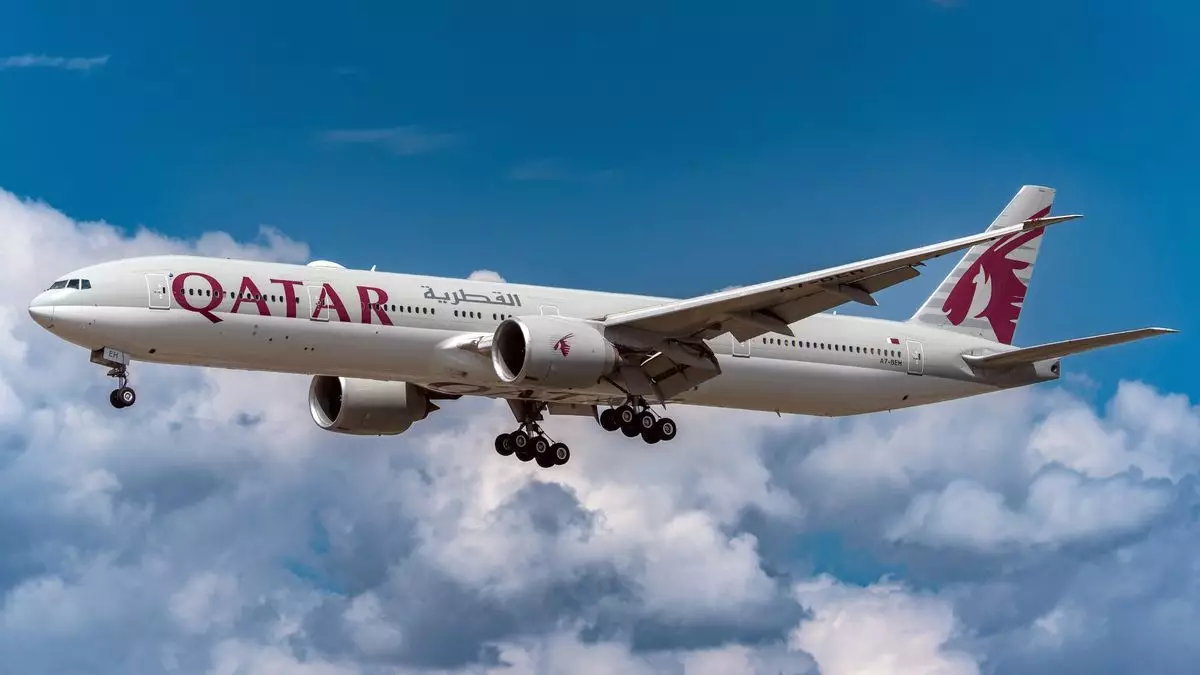In a monumental move for the aviation sector, Qatar Airways has secured an agreement with Boeing that encompasses up to 210 widebody jets, with a staggering valuation of around $96 billion. While this figure appears impressive, it’s essential to consider the customary discounts that manufacturers typically extend on list prices, which can significantly alter the final transaction value. This historic deal, showcased during a signing ceremony in Doha, marks a pivotal moment not only for Qatar Airways but also for Boeing, symbolizing a stronger bond between the U.S. and Qatar in the realm of international trade.
The Significance of the Order
The aircraft order includes a mix of Boeing 787 Dreamliners and 777X models, highlighting Qatar Airways’ commitment to modernizing their fleet with some of the most fuel-efficient and technologically advanced aircraft available. The White House has declared this as Boeing’s largest order for widebody aircraft, underlining the transaction’s potential impact on the company’s financial forecasts. Such strategic investments in newer, more efficient planes not only reflect a focus on sustainability but also represent Qatar Airways’ aspiration to enhance its global reach and service quality.
Political Undertones and Diplomatic Gift
The backdrop of this significant decision involves more than just financial implications; it also reflects a complex web of diplomatic relations. President Donald Trump’s visit to Qatar during the signing ceremony adds another layer to this already intricate scenario. The engagement between Trump and Qatar’s royal family has been laden with undertones of mutual benefit, especially with a surprising gesture where the emir offered a Boeing 747 as a replacement for Air Force One. Trump’s acceptance of this gift, regardless of ethical concerns raised by critics, underscores the U.S. administration’s inclination towards strengthening ties with key Middle Eastern allies.
The Long-Term Vision
This aviation deal sets a precedent for future collaborations between Boeing and international airlines, illustrating the potential for economic growth not just for the companies involved, but also for their respective nations. The prospect of maintaining and expanding military and commercial relationships via such agreements emphasizes the importance of aviation as a strategic asset in a globalized world. The hope is that with these new aircraft, Qatar Airways will not only enhance its fleet but also its competitive stance in the ever-evolving airline industry while providing jobs and economic stimulation at home.
Reactions and Implications
Reactions to the deal have been mixed; while many celebrate the economic opportunities it heralds, there are voices of dissent that voice concerns over the ethical implications behind accepting gifts from foreign nations. The notion of national pride versus fiscal prudence is a delicate balancing act that the current administration seems willing to embrace. As more countries engage in similarly ambitious deals, the dialogue surrounding ethical boundaries in international business and politics will likely intensify, making this an important case study for future transactions.
In a landscape peppered with uncertainty, Qatar and Boeing’s landmark agreement stands as a testament to the potential of aerospace industries to drive forward economic and diplomatic agendas while navigating the fine line between opportunity and ethics.


Leave a Reply